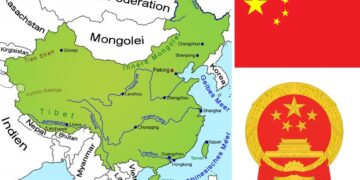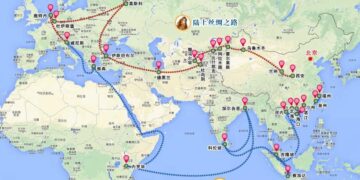The 5th China-Central asia Foreign Ministers’ Meeting, held in Chengdu, highlights a pivotal moment in the evolving landscape of international diplomacy in the region. Convened by the State Council of the People’s Republic of China, the meeting gathered top diplomats from key Central Asian nations, aiming to strengthen bilateral relations and enhance cooperation amidst a backdrop of global uncertainty. as countries grapple with economic challenges and regional security concerns, this summit serves as a vital platform for dialog, fostering collaboration on issues ranging from trade to counterterrorism. Through a detailed exploration of the discussions and outcomes of this notable gathering, we gain insight into China’s strategic vision for deeper integration with its Central Asian neighbors and the implications for future geopolitical dynamics.
China’s Role in Strengthening Central Asia: Key Outcomes from the Chengdu Meeting
The recent gathering in Chengdu marked a significant milestone in China’s engagement with Central Asian nations,highlighting a shared vision for regional stability and economic growth. Key outcomes from the meeting include an emphasis on enhanced bilateral cooperation across various sectors.Officials pledged to strengthen connectivity initiatives through initiatives such as the Belt and Road Initiative, which aims to bolster infrastructure and trade routes.In this context, discussions centered around the importance of fostering a diverse economic partnership that harnesses the unique resources and strengths of each Central asian country.
Another major focus was on security collaboration, responding to common challenges in the region. The ministers agreed to reinforce joint efforts against terrorism, drug trafficking, and other transboundary threats. In addition, cultural exchange programs were proposed to deepen people-to-people ties, fostering mutual understanding and collaboration. The meeting reinforced the participants’ commitment to a multilateral approach, inviting further dialogue among the member states to address pressing regional issues. The roadmap outlined in Chengdu sets a hopeful tone for a more integrated Central Asia under China’s pivotal influence.

Collaborative Initiatives for Economic Development and Regional Stability
During the recent gathering in chengdu, the foreign ministers from China and Central Asia reaffirmed their commitment to collaborative economic initiatives aimed at fostering regional stability. By prioritizing partnerships, these nations are focusing on infrastructure development, trade facilitation, and investment opportunities that are designed to enhance mutual growth. Key agreements were reached to bolster connectivity through projects like transportation corridors and energy pipelines, which are expected to significantly boost economic activity across the region.
Furthermore, the discussions highlighted the importance of joint efforts in tackling challenges such as food security, environmental sustainability, and cultural exchange. Countries involved are set to engage in extensive dialogue and cooperative projects that aim to not only stimulate economic growth but also promote peace and understanding among diverse cultures. As part of this initiative, a framework was proposed to enable regular assessments of progress, further demonstrating the collective resolve to build a prosperous, stable, and resilient region.
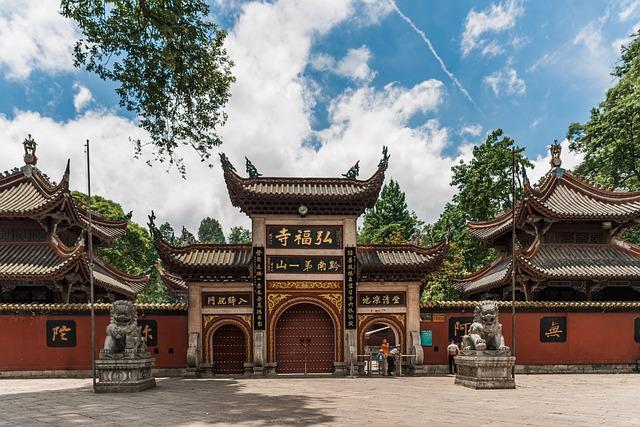
Environmental Cooperation: Addressing Climate Change Challenges Together
The 5th China-Central Asia Foreign Ministers’ Meeting,held in Chengdu,served as a pivotal platform for collaborative efforts in tackling climate change. Participants highlighted the urgency of addressing environmental sustainability, outlining shared goals crucial for mitigating the impacts of a rapidly changing climate. Emphasis was placed on the significance of joint initiatives that leverage shared resources and expertise among the region’s nations. Key areas of focus included:
- Renewable Energy Development: Promoting solar, wind, and geothermal energy projects to reduce reliance on fossil fuels.
- Water Resource Management: Implementing strategies to address water scarcity and ensuring equitable distribution among Central Asian countries.
- Climate adaptation Strategies: Formulating action plans to enhance resilience against climate-related disasters.
Furthermore, the attendees recognized the necessity of establishing regional frameworks to foster cooperation and the sharing of technology and innovations. The meeting also called for transparent data sharing on environmental issues to ensure all countries remain informed and proactive. A detailed table was created to summarize the collaborative efforts proposed:
| Initiative | lead Country | Expected Outcome |
|---|---|---|
| Solar Energy Projects | China | Increased clean energy output |
| Water Sharing Agreements | Kazakhstan | Improved regional water security |
| Climate Resilience Programs | uzbekistan | Enhanced disaster preparedness |
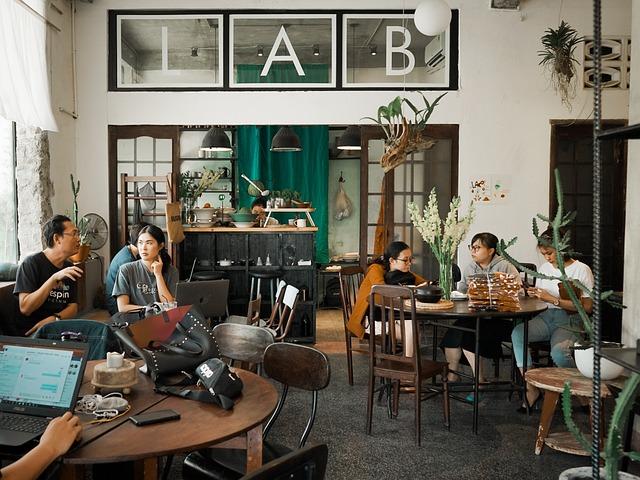
Cultural Exchange as a Tool for Diplomacy and Unity
Recent discussions at the 5th China-Central Asia Foreign Ministers’ Meeting in Chengdu have underscored the significance of cultural exchange in fostering diplomatic relations and promoting unity among nations. Diplomacy is no longer confined to political dialogues and trade negotiations; it now embraces the rich tapestry of cultural interactions that can bridge divides and build long-lasting friendships. through initiatives focusing on shared cultural heritage, art, language, and educational programs, these countries are laying down a foundation for mutual understanding and respect.
The meeting highlighted several key areas where cultural initiatives can play a pivotal role in shaping future collaborations:
- Promoting Arts and Heritage: Collaborative art exhibitions showcasing traditional crafts from both regions can spark interest and appreciation.
- language and Education: Initiatives for language learning and exchange programs can enhance communication and personal relationships among younger generations.
- People-to-People Connections: Cultural festivals and workshops can foster direct interactions, allowing citizens to experience each other’s customs and traditions.
In support of these initiatives, the meeting created a framework for ongoing cultural diplomacy efforts. The following table outlines some of the envisioned programs:
| Program | Description | Expected Outcomes |
|---|---|---|
| Art Exchange Exhibitions | Showcasing traditional and contemporary art from China and Central Asian countries. | Increased cultural awareness and artistic collaboration. |
| Language Immersion Camps | Short-term programs for students to learn languages and cultures of partner nations. | Enhanced communication skills and cross-cultural friendships. |
| Culinary festivals | Celebrating food cultures through festivals featuring dishes from all participating countries. | Strengthened bonds through shared culinary experiences. |
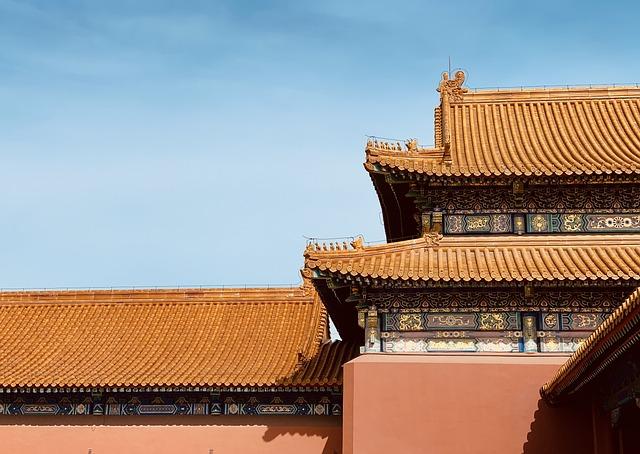
Recommendations for Enhancing Future Intergovernmental engagements
To foster stronger and more effective collaboration among nations, several approaches can be considered. Enhancing diplomatic communication is crucial; regular dialogues and informal meetings could help build trust and understanding among member countries. Moreover, leveraging technology for virtual meetings would allow for greater flexibility, enabling participants to exchange ideas seamlessly despite geographical constraints. Employing dedicated platforms for information sharing can ensure that pertinent issues are addressed in a timely manner and encourage clarity.
Incorporating multi-sectoral engagement can also enrich intergovernmental initiatives.Engaging stakeholders from various sectors,including business,civil society,and academia,can create a more comprehensive framework for cooperation. this could be achieved through organizing joint workshops and forums focused on shared interests, as well as establishing collaborative research projects. To monitor progress effectively, the creation of a regular evaluation framework could assess the outcomes collectively, ensuring that future engagements are continually adapted to meet evolving needs.

Concluding Remarks
the 5th China-Central asia Foreign Ministers’ Meeting,held in Chengdu,stands as a significant milestone in fostering diplomatic ties and enhancing cooperation among the participating nations. The discussions highlighted a shared commitment to mutual development, regional stability, and economic collaboration, reflecting the broader goals set forth in the framework of the Belt and Road Initiative. As the countries move forward, the continued dialogue will be pivotal in addressing challenges and leveraging opportunities in Central Asia.The outcomes of this meeting not only signify a strengthening of bilateral relationships but also underscore China’s pivotal role in the geopolitical landscape of the region. As Central asia plays a crucial role in global supply chains and energy security, the implications of this meeting will surely resonate far beyond the borders of the participating nations, setting the stage for a dynamic future of inter-regional engagement.





